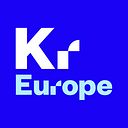German police raided CATL battery plant before the Chinese New Year
On 11th January early morning, more than 250 armed officers from the German federal police and custom authority encircled Chinese battery giant Contemporary Amperex Technology (CATL) ‘s new manufacturing plant in Arnstad, state of Thuringia. Targets of the sudden raid: illegal factory workers from China.
Police officers investigated over 400 CATL workers on site, with support of helicopters overwatching the 230,000 m² factory area — the largest battery cell manufacturing plant in Europe to-date. Beside Chinese workers, a large portion of the labor force were from southern and eastern European countries via subcontractors of the company, thus the authority needed to bring extra translators to aid the operation.
According to the local state media MDR, the secret investigation has been already ongoing since several months. The German police has suspected that hundreds of illegal workers are present at the battery plant, most of which from China. As a joint operation between federal police and custom office, significant amount of documents and paperwork related to CATL have been investigated prior to the raid, without alarming the exchange-listed Chinese battery giant. Accused violations of CATL range from invalid work-permit, counterfeited labor document, breach of minimum-wage, as well as poor working and accommodation conditions.
The raid just days before the traditional Chinese New Year caught CATL by surprise. The new factory located at the geographical center of Europe costed the Chinese company 1.8 billion Euro capital and 3 years of construction, amid the global COVID-19 pandemic. The Arnstad plant successfully produced its first batch of battery cells before Christmas 2022, with an initial capacity of 8 GWh annually. CATL is expecting the plant to reach its full capacity by end of 2023 — delivering 14 GWh battery cells from six production lines each year to European carmakers — one year later than initially planned as the construction broke ground in 2019.
Despite advance in technology over the past years, the battery pack is still the key price driver of an electric vehicle, making up as much as 40% of the total cost. The German battery plant was a strategic move of CATL, to serve its key customers in European market, including Telsa who has just commissioned its gigafactory in Berlin last year. German authorities suspected that CATL may have employed illegal labor practices to accelerate the ramp-up phase of the plant and reduce overall operating costs. The gigafactory shall add 2,000 new manufacturing jobs in Arnstad — a small town with 27,000 population. According to Matthias Zentgraf, the former Samsung SDI sales head and now European President of CATL, the company plans to hire and train the majority of its work force locally, while reallocating 200–300 skilled workers from China to Germany. The calculation behind is obvious: Germany boasts one of the highest labor costs world-wide, ranking closely to its Nordic neighbors Norway and Belgium. CATL must also compete with other employers to attract its needed local workforce, plus the energy crisis and price inflation in Europe adding up uncertainties. Experienced battery factory workers from China could save the company both money and time, with the latter being the most precious in today’s turbulent global market.
The outcome of the massive raid on Wednesday was dramatic as well. German authorities confirmed only one single case of labor law violation after controlling the entire staff and factory floor, without details on the specifics. Police officers claimed witnessing “Chinese workers fleeing into wild fields” during a routine control to the plant earlier last year, which raised suspicion. However, no explanation could be given by authorities for the huge gap between expectation and result of the raid. It is suspected that certain number of Chinese guest-workers did not leave the country in due time upon expiration of their work visa, because of the strict zero-COVID lockdown in China at that time and expensive flight tickets before the year-end.
CATL did not officially respond to the raid. The Arnstad plant has been one of the largest Chinese greenfield investments in Europe over the past years, and has drawn public attention and debate since the very beginning. On the same day of the raid, CATL signed a strategic partnership on EV chassis development with Hozon Auto, another rising electric carmaker from China backed by venture capitals and aiming IPO this year. To CATL, this incident might well be only one of the countless challenges in the company’s 20+ years history. With more than 50% shares in the global EV battery market, CATL is continuing in expanding global output capacity, including a new 100 GWh plant in Hungary jointly with Mercedes. Furthermore, it is also strategically investing in upstream mining resources world-wide, from Southeast Asia to Latin America. The goal is very clear: to further integrate the EV battery value-chain and lower the cost to end-users.
Originally published at https://www.kr-europe.co on January 13, 2023.
